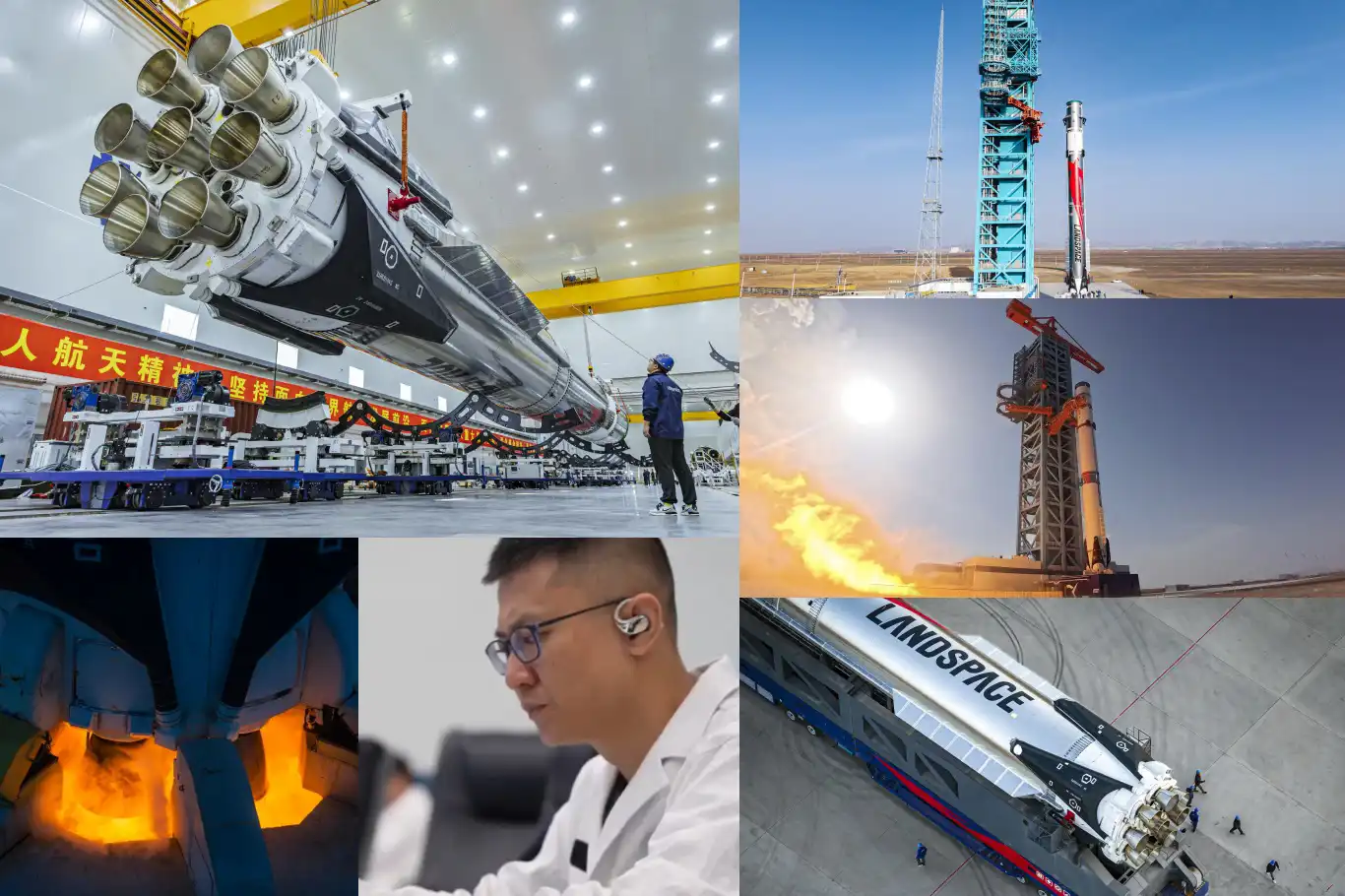China edges closer to reusable rocket launch with Zhuque-3


Chinese aerospace company LandSpace marked a significant milestone in its quest to develop a reusable rocket, successfully conducting a static-fire test of its Zhuque-3 launcher on Monday, October 20.
The test, performed at the Dongfeng Commercial Space Innovation Pilot Zone in northwestern China, keeps the stainless steel rocket on track for its highly anticipated debut flight before the end of 2025, which will include an attempt to recover its first stage.
The static-fire test, a critical prelaunch procedure where the rocket’s engines are fired while anchored to the launch pad, concluded the three-day “first phase” of Zhuque-3’s maiden flight campaign. This phase also included a successful fueling test, demonstrating the rocket’s readiness for upcoming operations. LandSpace announced via X that the Zhuque-3 will now undergo a vertical integration rehearsal before returning to the technical zone for inspection and maintenance in preparation for its orbital launch.
Standing 217 feet (66 meters) tall, the Zhuque-3 bears a striking resemblance to SpaceX’s Falcon 9, featuring a reusable first stage and an expendable upper stage. Powered by nine in-house developed Tianque-12A engines, Zhuque-3 is designed to carry approximately 40,350 pounds (18,300 kilograms) to low Earth orbit (LEO), placing it in a similar performance class as the Falcon 9, which has a LEO capacity of 50,265 pounds (22,800 kg). The reusable design of Zhuque-3 aims to reduce launch costs, aligning with global trends in commercial spaceflight where reusability has become a cornerstone of economic sustainability.
LandSpace’s progress with Zhuque-3 builds on a series of achievements. In 2024, the company conducted low-altitude launch and landing tests to validate the rocket’s recovery capabilities, followed by another static-fire test in June 2025. These milestones highlight LandSpace’s rapid development pace as it seeks to compete in the global space race, particularly with industry leaders like SpaceX.
Founded in 2015, Beijing-based LandSpace has already made history with its Zhuque-2 rocket, an expendable launcher powered by liquid oxygen and methane (LOX-methane). In July 2023, Zhuque-2 became the first LOX-methane rocket to reach orbit, achieving four consecutive successful launches before a failure in August 2025. The use of LOX-methane propulsion, which offers advantages in efficiency and reusability, underscores LandSpace’s innovative approach to rocket design.
The Zhuque-3’s development is part of China’s broader push to advance its commercial space sector. The country has seen a surge in private aerospace companies, supported by government policies aimed at fostering innovation and reducing reliance on traditional state-led programs. LandSpace’s efforts align with China’s ambition to rival global space powers, with reusable rockets playing a pivotal role in lowering costs and increasing launch frequency.
Industry analysts view Zhuque-3 as a potential game-changer for China’s space industry. “LandSpace’s progress with Zhuque-3 demonstrates China’s growing capability in reusable rocket technology,” said Dr. Li Wei, a space policy expert at the China Academy of Space Technology. “If successful, Zhuque-3 could position LandSpace as a formidable competitor in the global launch market.”
The upcoming orbital launch will be a critical test for Zhuque-3, particularly its first-stage recovery system, which aims to emulate the precision landings pioneered by SpaceX. A successful mission could solidify LandSpace’s reputation and pave the way for more frequent and cost-effective launches, bolstering China’s presence in the competitive commercial space landscape.
As LandSpace prepares for Zhuque-3’s debut, the global space community is watching closely. With its innovative design and ambitious goals, Zhuque-3 represents a bold step forward for China’s aerospace aspirations, signaling a new era of reusable rocket technology in the region. (ILKHA)
LEGAL WARNING: All rights of the published news, photos and videos are reserved by İlke Haber Ajansı Basın Yayın San. Trade A.Ş. Under no circumstances can all or part of the news, photos and videos be used without a written contract or subscription.
European leaders, including French President Emmanuel Macron, have sharply criticized the United States after Washington imposed visa bans on several prominent European figures involved in efforts to regulate major American technology companies.
The 77th International Astronautical Congress (IAC 2026) will be held in Antalya, Türkiye, from 5 to 9 October 2026, marking a historic milestone as Türkiye hosts the world’s largest and most prestigious space conference for the first time.
NASA’s SPHEREx space telescope has successfully produced the first complete map of the entire sky, marking a major milestone in humanity’s effort to understand the origins and evolution of the universe.
Blue Origin has postponed the launch of its New Shepard Mission NS-37 after engineers detected an issue during routine pre-flight checks, the company said in an update.